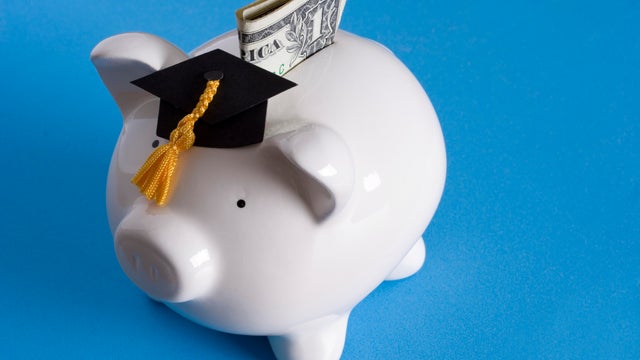What is a good student loan interest rate?

Rising education costs have made borrowing money for college standard among incoming students today. In fact, the average cumulative student debt amount for bachelor's degree recipients is $29,100, according to the latest data from College Board.
When you're already borrowing a sum that large, scoring a great interest rate can make a big difference in the total amount you pay over time. And while today's high interest rate environment means rates are up across the board, that doesn't mean good rates aren't out there.
To make sure you're getting quoted a competitive rate on your student loan, it helps to understand the current market before you begin your application process.
Does a private student loan make sense for you? Explore the options available for you here and learn more.
Student loan rates differ between federal and private loans. Federal student loan rates are fixed and depend on the loan type and academic year your loan is disbursed. If you're borrowing money between July 2023 and 2024, here's what you'll pay:
If you're unable to qualify for federal student loans or your federal loans don't cover all of your expenses, private student loans may be a good alternative. There's a lot more variability in the rates these loans offer, and rates can depend on a number of factors. Private student loan rates may also be fixed or variable.
Below are some of the best student loan rates available as of July 14, 2023. These rates include discounts for autopay.
Undergraduate:
Graduate:
Compare more of today's top rates and see what you can qualify for now!
If you're considering using private student loans to finance a portion of your education costs, there are a few things you can do to increase your chances of qualifying for the best rates.
First, it helps to understand how rates may differ based on the type of loan you choose. For example, student loans with fixed rates tend to offer lower starting rates, while variable-rate loans may start higher, but you could benefit from a variable rate if interest rates fall in the future.
Along the same lines, a shorter loan term may have a lower interest rate, even if you take on higher monthly payments. With a longer loan term, you may pay less monthly but more over time.
Additionally, some lenders offer lower rates on private student loans with cosigners. Adding a cosigner to your loan can help you appear less risky to lenders.
Both you and your cosigner (if you use one) should view your credit score and credit report early on before applying for any loans, so you can take action to start improving your credit if needed.
Finally, as with any loan, you should compare multiple lenders before you agree to a loan. When you prequalify with several different lenders, you may find you're eligible for better terms with one over another. Just make sure you check for prequalification using the same information and loan type.
Start comparing private student loans you qualify for today.
Whether you're an undergraduate, graduate or professional student, it can cost a lot of money to finance your education. But even if borrowing money is necessary, you can still save by securing the best possible loan rates.
If you qualify for federal student loans, you can access competitive fixed rates. But if you need to supplement your financing with private student loans, look for lenders with rates that start around 5% APR or lower. With a solid loan application and some research into the right loan type for you, you can save money with a lower rate over the lifetime of your loan.
source: https://www.cbsnews.com/news/what-is-a-good-student-loan-interest-rate/